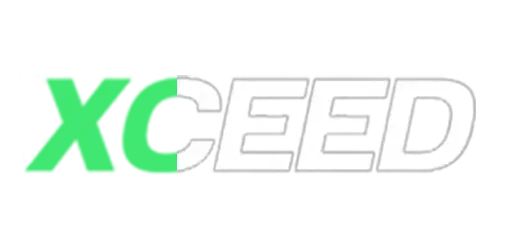Introduction
In today’s digital world, your website is often the initial point of contact between your company and potential clients. This makes selecting the proper web design business an important decision that can have a big impact on your brand’s online presence. Asking the proper questions before making this decision is more than just a formality; it’s an important step in ensuring that your investment produces the desired benefits. By undertaking a thorough vetting process, you can save time and resources while laying the groundwork for a successful project completion.
Choosing a web design company is more than just examining portfolios and comparing prices. It’s about understanding the capabilities, methodologies, and values that the company brings to the table. The right questions will help you gauge their expertise, reliability, and alignment with your specific needs. This blog post will guide you through a checklist of crucial questions to ask potential web design companies. These questions are designed to help you evaluate their technical proficiency, project management skills, and overall approach to delivering high-quality web design solutions.
This comprehensive guide will cover key areas such as the company’s experience, design process, technical skills, project timelines, and post-launch support. By the end of this post, you’ll be equipped with the knowledge to make an informed decision, ensuring that the web design company you choose is the perfect fit for your business objectives.
Understanding Their Experience
When considering hiring a web design company, it is crucial to gauge their experience in the field to ensure you are partnering with a capable and reliable team. One of the first questions to ask is, “How long have you been in business?” This will give you an idea of their longevity and stability in the industry. A company with a significant track record is more likely to have refined their processes and developed a comprehensive understanding of web design’s evolving nature.
Additionally, requesting examples of websites they have designed is essential. By asking, “Can you provide examples of websites you’ve designed?” you can assess their design style, creativity, and technical prowess. Reviewing their portfolio allows you to determine if their previous work aligns with your vision and whether they can deliver the aesthetic and functionality you desire for your website.
It is also beneficial to inquire about the various industries they have worked with by posing the question, “What industries have you worked with?” A web design company that has experience across multiple industries demonstrates versatility and adaptability. Their ability to cater to diverse business needs indicates they can tailor their design approach to meet the unique requirements of your sector, potentially leading to a more effective web presence.
The experience of a web design company can significantly impact the quality and effectiveness of the web design they provide. Companies with extensive experience are likely to better understand user behavior, current design trends, and the latest technologies. They can offer insights and suggestions that less seasoned companies might overlook, ultimately contributing to a more robust, user-friendly, and aesthetically pleasing website.
Portfolio Review
When considering a web design company, one of the most important steps is to review their portfolio. This step allows you to gauge the company’s experience, creativity, and the functionality of the websites they have previously developed. A well-documented portfolio is a testament to their expertise and can provide valuable insights into what you can expect from their services.
Start by asking, “Can I see your portfolio?” A reputable web design company will be more than willing to showcase their past projects. Reviewing their portfolio will help you understand their design style and whether it aligns with your vision. Look for diversity in their work; this indicates their ability to cater to different industries and project requirements.
Another crucial question is, “Which of your projects are you most proud of?” This can reveal the company’s strengths and highlight their best work. It’s an opportunity to see the level of creativity and innovation they bring to their projects. Pay attention to the functionality and user experience of these highlighted projects as these aspects are just as important as visual appeal.
Additionally, inquire, “Do you have case studies or client testimonials?” Case studies provide a comprehensive view of the challenges faced, the solutions implemented, and the outcomes achieved. They showcase the company’s problem-solving abilities and their effectiveness in delivering results. Client testimonials, on the other hand, offer third-party validation of the company’s competence and reliability.
By thoroughly examining a web design company’s portfolio, you can make an informed decision about their capability to meet your specific needs. This step not only helps in assessing their technical skills and creative prowess but also builds confidence in their ability to deliver a successful project.
Technical Skills and Expertise
When considering a web design company, one of the most critical factors to evaluate is their technical skills and expertise. Understanding the technologies they specialize in is paramount. Ask questions like, “What technologies do you specialize in?” to gauge their proficiency. A reputable company should be adept in a variety of languages and frameworks, such as HTML, CSS, JavaScript, and more advanced technologies like React, Angular, or Vue.js. This versatility ensures they can build a site that meets your specific needs.
Another essential aspect is their familiarity with the latest web design trends and standards. Inquire, “Are you familiar with the latest web design trends and standards?” Staying updated with current trends ensures your website not only looks modern but also functions seamlessly across different devices and browsers. Trends such as responsive design, mobile-first development, and user experience (UX) optimization are crucial for maintaining a competitive edge in the digital landscape.
The ability to handle custom coding is often a differentiator among web design companies. Ask, “Can you handle custom coding if necessary?” Custom coding capabilities allow for greater flexibility and personalization, enabling the development of unique features tailored to your business needs. This skill is particularly important for companies requiring specialized functionalities that off-the-shelf solutions cannot provide.
Technical skills directly impact your website’s performance, security, and scalability. A technically proficient web design company will ensure that your site loads quickly, which is vital for user retention and SEO rankings. They will also implement robust security measures to protect your site from cyber threats. Additionally, their expertise will allow your website to scale efficiently as your business grows, accommodating increased traffic and expanded features without compromising performance.
In essence, thoroughly vetting a web design company’s technical skills and expertise is essential for developing a high-performing, secure, and scalable website. By asking the right questions, you can ensure that you partner with a company capable of delivering a website that not only meets your current needs but also adapts to future demands.
Project Management and Communication
Clear communication and effective project management are fundamental to the success of any web design project. Before hiring a web design company, it’s crucial to understand how they handle these aspects. Start by inquiring, “Who will be my main point of contact?” Knowing this helps establish a reliable channel for all project-related communications, ensuring you always have someone to address your concerns or answer your questions.
Next, ask, “How often will we communicate?” Regular updates are essential for tracking progress and making timely decisions. Determine whether the communication frequency aligns with your expectations and project needs. This can range from daily updates during critical phases to weekly or bi-weekly check-ins during less intensive periods.
Another important question is, “What project management tools do you use?” Tools like Trello, Asana, or Jira can streamline the project workflow, enhance collaboration, and provide transparency. Understanding the tools in use will help you familiarize yourself with the process and access project timelines, task statuses, and milestones effectively.
Consistent communication and proficient project management contribute significantly to the smooth execution of a web design project. They ensure that all stakeholders are on the same page, potential issues are identified and resolved promptly, and the project stays on track and within budget. A web design company that prioritizes these aspects is more likely to deliver a final product that meets your expectations and business goals.
Understanding Their Design Process
When hiring a web design company, understanding their design process is crucial. This knowledge not only offers insight into the company’s workflow but also ensures that your expectations align with their methodologies. The design process can vary significantly between companies, so asking specific questions can help clarify their approach and compatibility with your project needs.
A fundamental question to begin with is, “Can you walk me through your design process?” This inquiry allows the web design company to outline each step they take from initial concept to final product. Understanding these stages helps you gauge how structured and organized their process is. A well-defined process is often indicative of a company’s ability to handle projects efficiently and deliver high-quality results.
Another vital question is, “How do you incorporate client feedback?” Client feedback is a critical component of the web design process. A reputable company should have a clear mechanism for integrating your input at various stages. This ensures that the final design aligns with your vision and requirements. Knowing how and when your feedback is solicited and implemented can prevent misunderstandings and ensure a smoother collaboration.
Finally, inquire about the “typical timelines for project milestones.” Understanding the expected timelines for key project phases, such as initial drafts, revisions, and final delivery, can help you manage your expectations and plan accordingly. It also provides insight into the company’s efficiency and ability to meet deadlines, which is essential for maintaining your overall project schedule.
By asking these questions, you gain a clearer picture of the web design company’s workflow, their flexibility in incorporating your feedback, and their ability to adhere to timelines. This comprehensive understanding helps ensure that you choose a web design partner whose process aligns with your needs and expectations, ultimately leading to a more successful project outcome.
Pricing and Contract Details
When hiring a web design company, discussing pricing and contract details upfront is crucial to ensure transparency and avoid potential financial misunderstandings. One of the primary questions to ask is, “What is your pricing structure?” Understanding whether the company charges a flat fee, hourly rate, or offers package deals will help you budget effectively for your project. It’s also essential to inquire, “Are there any additional costs I should be aware of?” This question aims to uncover hidden fees related to extra revisions, third-party integrations, or ongoing maintenance that might not be apparent in the initial quote.
The contract details are equally important. Asking, “What does the contract include?” will help you understand the scope of services, deliverables, and timelines. Ensure the contract clearly outlines the project’s milestones, deadlines, and payment schedules. This clarity can prevent disputes and ensure both parties are aligned on expectations. It’s also wise to review the terms related to project modifications. For instance, additional rounds of revisions or changes in project scope can often incur extra costs, so it’s beneficial to have these aspects explicitly stated in the contract.
Moreover, consider asking about the terms related to ownership of the final product. Clarifying, “Who will own the rights to the website once it’s completed?” can prevent future legal complications. Typically, the client should retain full rights to the site upon project completion, but it’s important to make sure this is explicitly mentioned in the contract.
In summary, addressing pricing and contract details at the outset is essential for a smooth collaboration with a web design company. Clear financial and contractual terms can help prevent misunderstandings and ensure that both parties have a mutual understanding of the project scope and expectations. This proactive approach lays a solid foundation for a successful web design project.
Post-Launch Support and Maintenance
When considering the services of a web design company, the scope of their post-launch support and maintenance offerings is a critical factor. Post-launch support is essential to ensure that your website continues to function smoothly and remains up-to-date with evolving technologies and user expectations. It is prudent to ask potential web design partners: “Do you offer post-launch support?” Understanding the specifics of their support services can help you gauge their commitment to your project’s long-term success.
Another crucial question to pose is: “What maintenance services do you provide?” Regular maintenance can include a variety of services such as software updates, security monitoring, and performance optimization. These services are vital to protect your website from vulnerabilities and to ensure it runs efficiently. Without proper maintenance, your website may become susceptible to security breaches or performance issues that could negatively impact user experience and your business’s reputation.
Additionally, inquire about training for your team with questions like: “Will you offer training for my team?” Proper training ensures that your team can manage the website, make necessary updates, and troubleshoot minor issues independently. This empowerment can lead to quicker resolutions of minor issues and a more seamless operation of your digital presence.
Ongoing support can significantly contribute to addressing any issues that arise post-launch, thereby reducing downtime and mitigating potential risks. It also allows for periodic reviews and updates that align your website with the latest trends and best practices in web development. This continuous improvement strategy is fundamental to maintaining a competitive edge and ensuring the long-term success of your website.
In summary, thorough post-launch support and maintenance services are indispensable for the sustained success and security of your website. By asking the right questions and understanding the extent of the services provided, you can make an informed decision that benefits your business in the long run.


